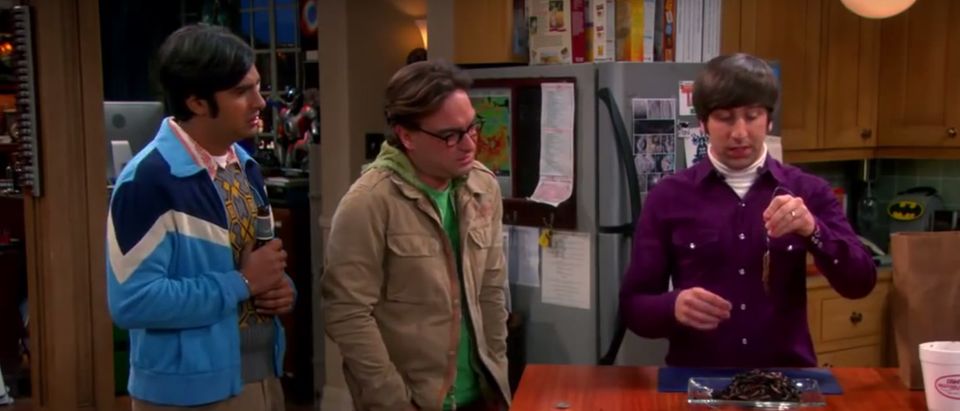“The Big Bang Theory” is a wildly popular show, despite being despised by self-identifying “gamers,” “geeks” and “nerds,” who take issue with its colorful, if often lazy references to geek culture. While relatively harmless, the series is now courting controversy among feminists who accuse it perpetuating hatred of women.
In a post on Saturday, feminist vertical The Mary Sue spotlighted a video by male “feminist ally” Jonathan McIntosh. Best known for producing Feminist Frequency and its “Tropes vs. Women in Video Games” YouTube series with Anita Sarkeesian, McIntosh argues that The Big Bang Theory’s male protagonists are the “perfect embodiment” of “the adorkable misogynist.”
McIntosh describes the characters as “male characters whose geeky version of masculinity is framed as both comically pathetic and endearing.” He claims it’s “their status as nerdy nice guys that then lets them of the hook for a wide range of creepy, entitled, and downright sexist behaviors.”
The male feminist, who often rails against “toxic masculinity” on his Twitter account, has nothing good to say about other men—whether they behave in an alpha Chad-like manner, or in a meek, Sheldon Cooper sort of way, as depicted by “The Big Bang Theory” actor Jim Parsons.
“These types of characters are shown engaging in a variety of harassing, entitled, and sexist behavior where women are concerned,” continues McIntosh. “They consistently stalk, spy on, lie to, and try to manipulate the women in their lives. They’re overbearing, they refuse to take ‘no’ for an answer, and they often ignore the basic tenets of consent.”
McIntosh spends much of the 21-minute video ranting about how every character on “The Big Bang Theory” exemplifies some negative archetype of the entitled male geek. While these characters are written the way they are for audiences to laugh at, McIntosh sees a more sinister side to the show’s writing.
He asks: “How does The Big Bang Theory keep us as the audience sympathetic to men who behave in such reprehensible ways?”
McIntosh argues that the butt of the joke isn’t their “misogynist behavior,” which he claims enables misogynists who continue as they are. He claims that the show makes fun of men who are not traditionally masculine, and that its implications are “troubling” because according to his read, the show’s message is “sexism is mostly harmless – and especially when that sexism is coming from geeky guys.”
Like the male feminist culture critic, The Mary Sue’s Marykate Jasper says that the “adorkable misogynist” trope exemplified by the characters on the show need to be taken seriously and challenged because it is anything but harmless.
She argues that the sort of behavior depicted on the show excuses men to get away with sexism in the real world, and serve to “push women out of politics, out of certain industries, and off of social media platforms.” As an example, The Mary Sue writer claims that the trope “makes it easier for men like James Damore to pretend that the sexism in the tech industry couldn’t be toxic enough to account for the gender gap in software engineering.”
Ian Miles Cheong is a journalist and outspoken media critic. You can reach him through social media at @stillgray on Twitter and on Facebook.


